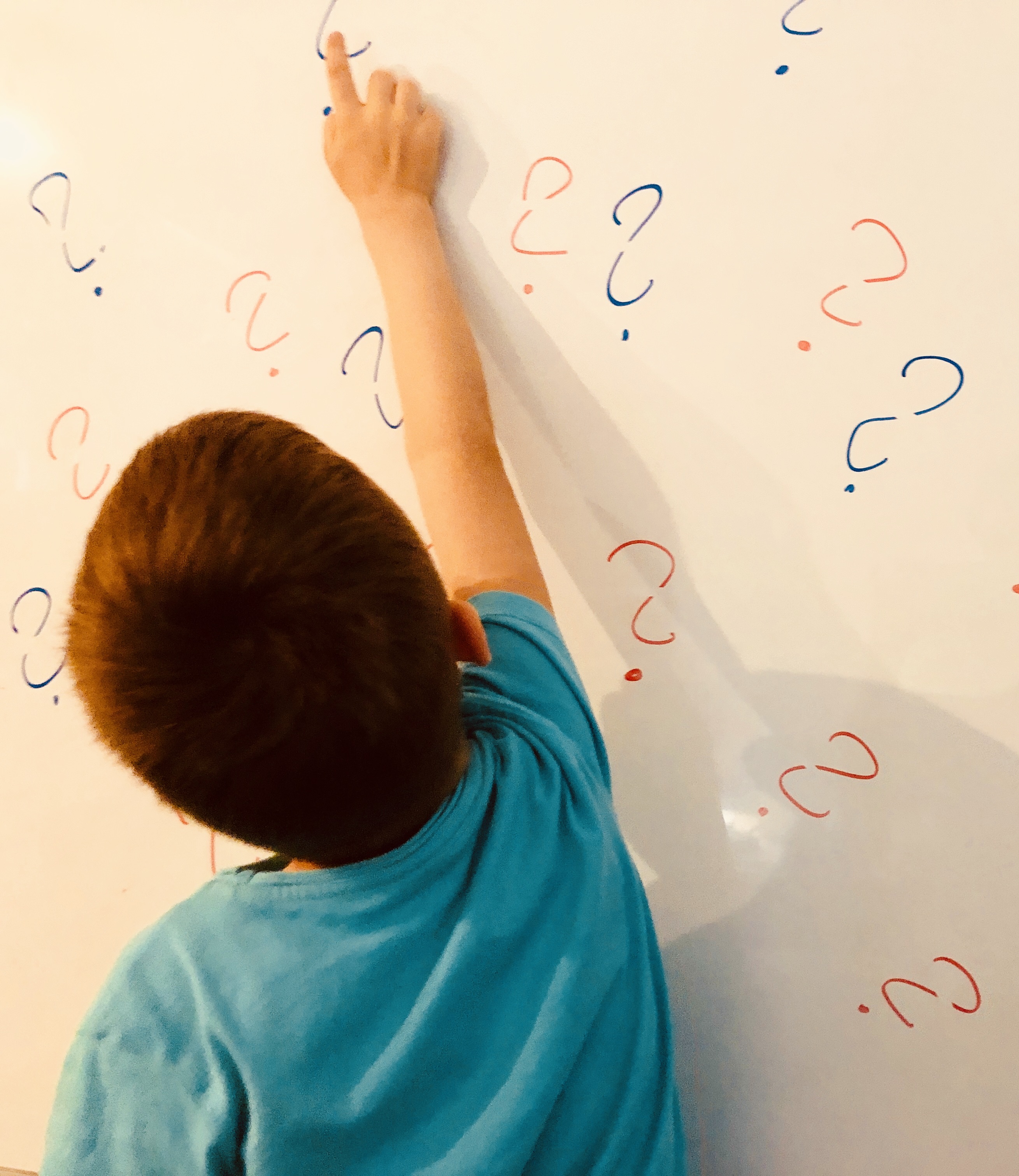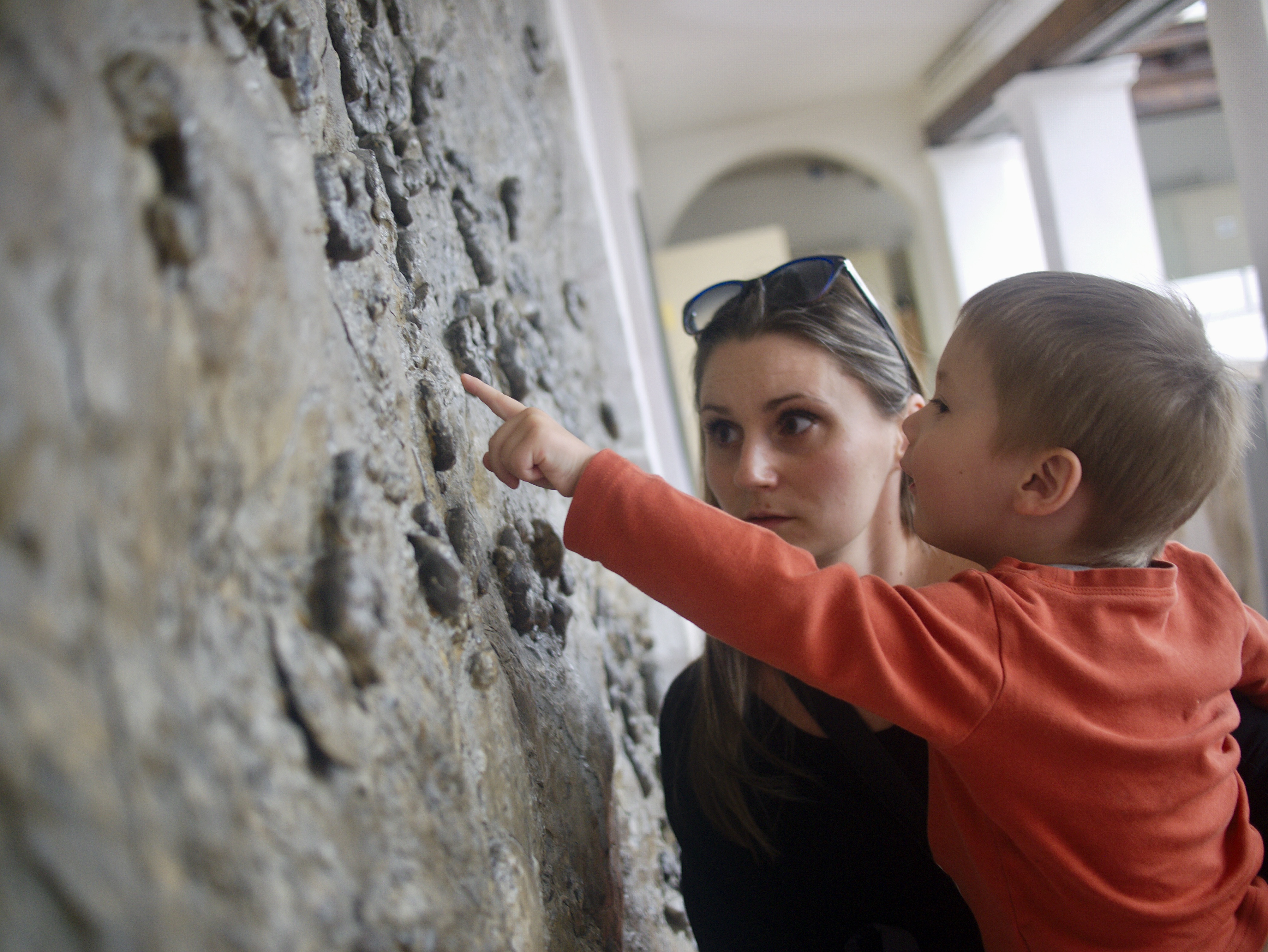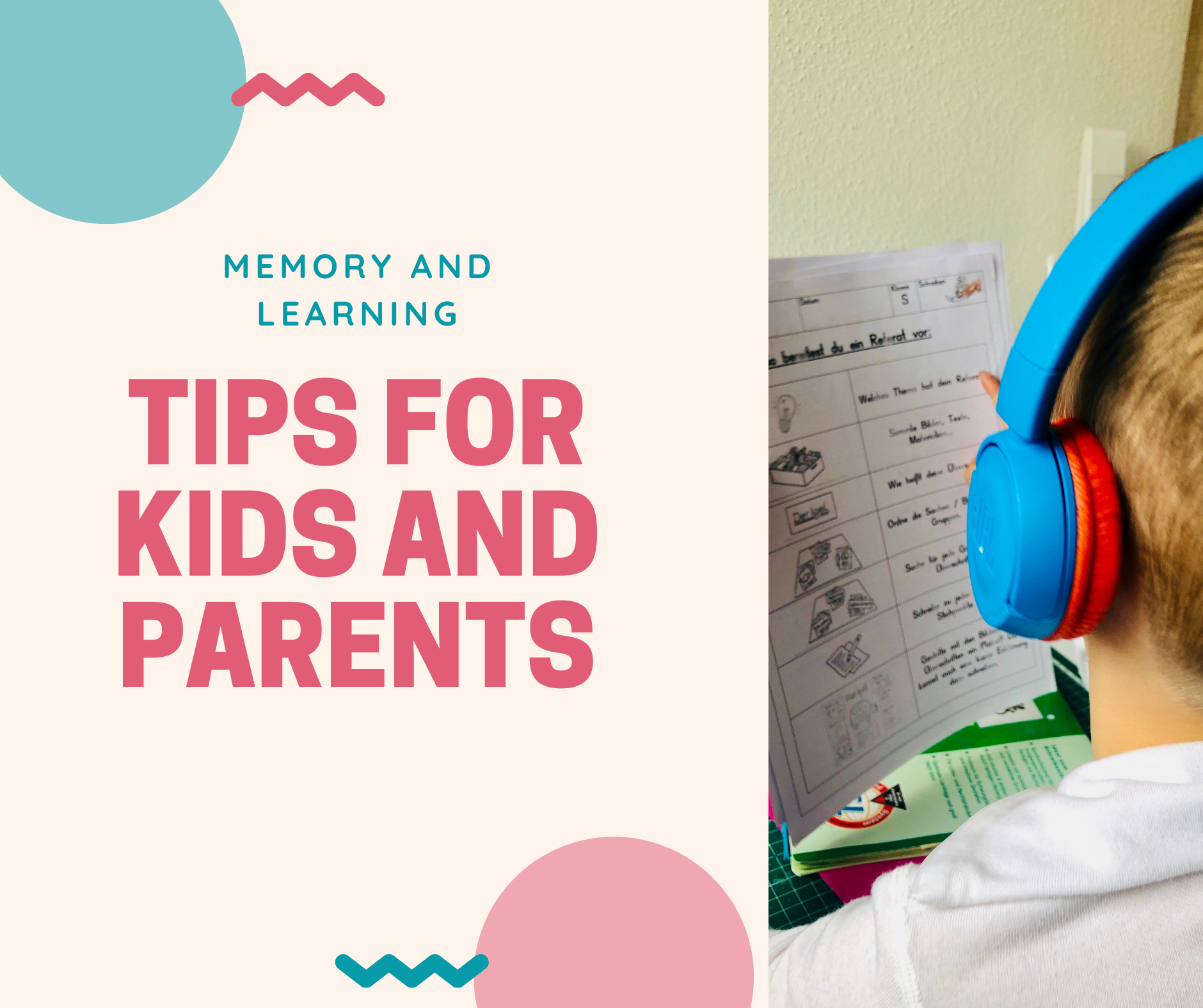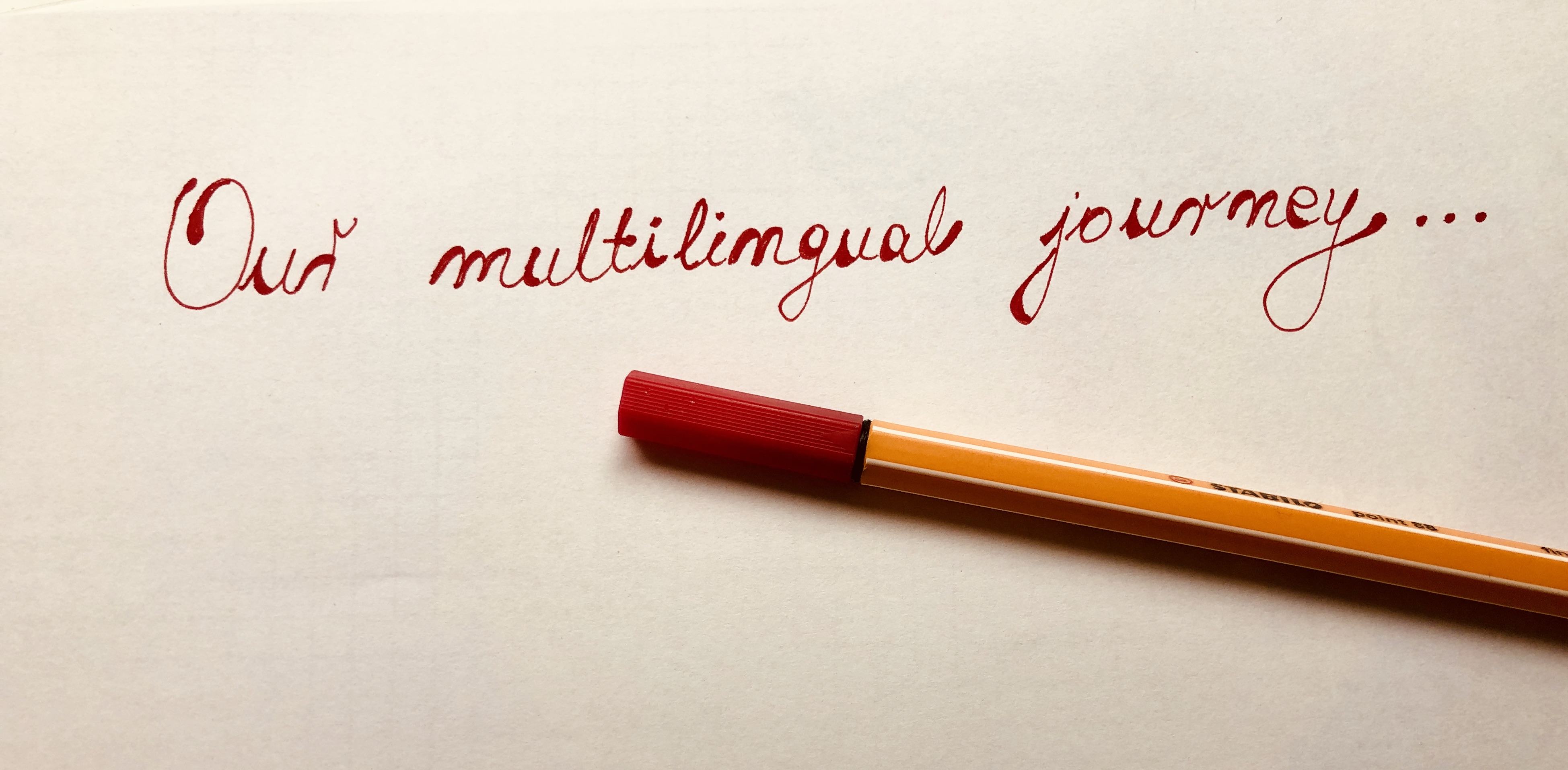Questions, questions

"Where are these balloons coming from?" asked one of my boys as he was farting in a bathtub.
Even if you don't know the answer, or don't feel like talking about the gas which is produced within the body when bacteria in the colon break down food and how it smells terrible because of hydrogen sulfide, keep in mind that asking questions is how children learn. It is the best way to gain deeper insights and develop more innovative solutions.
In this article:
Why do children ask questions?
Interesting fact: Did you know that children ask around 40,000 questions between the ages of two and five? 40,000!! And it is not just to annoy their parents (even though it sometimes looks like it's their goal). No. They actually want to learn why and get to the bottom of things[i]
Before children can speak
Children start asking questions even before they can speak. We just have to observe. Then you can notice that, even if they don't use words, they:
• Look closely at an interesting object or person
• Reach for an object or person
• Point to something
• Touch something
• Look at their parent with a questioning facial expression.
These are all questions.
When children start speaking
Then, around the age of two, when they start producing their first words, they hit another developmental stage. This stage, which lasts until about age 7, is called the pre-operational stage. Why "pre" operational? Operational means to be able to manipulate information logically. And children in this stage can't yet use logic to transform or separate ideas. One of the hallmarks of this period is language development. So, they build up their experiences of the world around them, but cannot organise those experiences logically. Therefore, they use their language as a tool to make sense of everything around them.
They start with "what's that" questions. It is often just a simple "that". When they are around 40 months old, comes a phase of "where" and "who" questions. And finally, when they are around three and a half years old, we enter a never-ending whirlpool of "when", "why", and "how" questions.
Important: Not all children grow and develop at the same pace.
In reality, the development of questions can look like this:
You are outside, walking down the street and you hear the most adorable "that" question, accompanied with a chubby little finger pointing to a bus.
Daddy: That is a bus. A big bus.
Several months later, a similar scenario plays out. Only this time, they need more information.
Kid: Where bus go?
Daddy: It's taking passengers to work or to their homes.
Kid: Where?
Daddy: Well, all around Munich, I guess.
Kid: Where?
Daddy: I don't know. Trudering, Perlach…
Kid: Where?
It seems like a never-ending story.
Before you know it, you find yourself googling information about how much petrol buses need and how we can replace it with solar energy, and what solar energy is and how to explain it to a three-year-old. And you still have to answer why this bus driver holds his hand on the steering wheel the way he does.
As soon as you think you've got it all covered, another question pops up. 40,000!
However, this amazing number of questions they can think of decreases drastically as they start school[ii]

Why do we stop asking questions?
In his wonderful book about the importance and different types of questions, Berger (see references below) explains we stop asking questions.
For starters, to question, we need to think, and thinking requires some mental workload. So, what does our brain do? It tries to find ways to reduce this workload. One way to reduce the workload is not to question and accept everything around us and operate in an autopilot mode.
Secondly, to ask questions, we need to accept our ignorance. This means that others will also become aware that we actually don't know something. And our society often punishes ignorance by labelling the ignorant as idiots. (This is precisely how I felt when they got into the "why phase").
Finally, to question, we need to remain curious. And this is where most school systems fail children. The teacher is seen as an authority figure, and children are afraid to question authority.
Now, this could put even more focus on the role of parents during early childhood - equipping children to question. If we don't do our best, they might find themselves at the bottom of the "asking questions" line.
5 ways to encourage questioning
Finding answers to questions to acquire new information, to explore and to see are what defines curiosity. And the more curious the child, the more likely he or she may be to perform better in school[iii]
Here are some ideas on how to help children remain curious and continue asking questions.
1) Stay curious yourself.
Ok, I did know some basics about farts in a bathtub, but why not learn something more?
The same goes for all other topics.
This photo was taken in the paleontological museum in Munich when our boys were two years old and in the "that?" phase. To answer all of their "what's that", I had to read and learn myself. The more I read, the more interesting it became. I bit of dramatisation was also helpful. You know, big eyes, sparkles, and excitement when you learn that most fossils are actually invertebrates, that is, animals without backbones. Today, 95% of all animals belong to this category. In the past, there were even more. Woow! I didn't know that. When children see that parents are curious, ask questions and look for answers, it tells them that questioning is something interesting and fun.
2) Demonstrate.
Think aloud method can be an excellent tool for teaching children how to ask questions, even before they learn to speak. (You can read more about the method in this article).
3) Make questioning interesting.
Being an encyclopaedia is usually our job. But, in our family, Google Home also shares the load. Our kids found this new "source of knowledge" fascinating the minute we got it. There is this small thing in your house, it's not alive, you ask some questions, and it gives you the answers. It understands German and English, but still has to learn Croatian. Sounds like fun. And, here are some interesting questions we heard them asking.
Hey, Google:
- Can you melt a diamond? (Answer: If you heat it to 5000 K (almost the temperature of the Sun) at 10 GPa of pressure, you might melt it.)
- Which is higher: Zugspitze or Mount Everest? (Answer: Mount Everest = 8,848 m, the Earth's highest mountain; Zugspitze = 2,962 m, the highest peak in Germany)
- How can you build a robot? (Answer: I am sorry. I am not sure how I can help)
- Which is the longest railway? (Answer: Would an answer to "which is the longest rail network" help? The US rail network has an operating route length of more than 250,000 km, making it the biggest in the world.)
- How big was megalodon? (Answer: Megalodon's maximum size falls into the 18 - 21-metre range, with a weight of 50 - 70 tons.)
And of course, a question for us was:
- How does Google know all of that?
4) Look for answers together.
Doing things together is not only to find answers. It strengthens the bond and children remember those moments. My best allies were books. There are answers to most of their questions. However, looking for answers to specific questions about rockets and the Universe is not always that easy. This is when my children say "Mummy, you don't know much about the Universe. We should wait for daddy." We also did a lot of projects together. Such a great way to spend time together and learn something new.
5) Ask questions.
Besides encouraging them to ask questions and teaching them how to find answers, it is helpful to ask them questions as well. But interesting ones, not just dull yes/no questions. Some of our favourites were:
- If you could be a drink, number, animal, or sound which one would you like to be?
- If you were Clifford (a big red dog from a story), what would you do?
- What are you looking forward to today?
- How do you know that mummy and daddy love you?
- How would you design a castle?
- If you were in a cartoon, which character would you be?
- What makes you different from your brother?
- What makes you unique?
How about some questions you ask your kids?
[i] Society for Research in Child Development. (2009, November 13). When preschoolers ask questions, they want explanations. ScienceDaily.
[ii] Berger, W. (2014). A more Beautiful Question: A power of inquiry to spark breakthrough ideas. New York/London/New Delhi/Sydney: Bloomsbury.
[iii] Shah, P.E., Weeks, H.M., Richards, B. et al. (2018). Early childhood curiosity and kindergarten reading and math academic achievement. Pediatr Res 84, 380–386. https://doi.org/10.1038/s41390-018-0039-3

